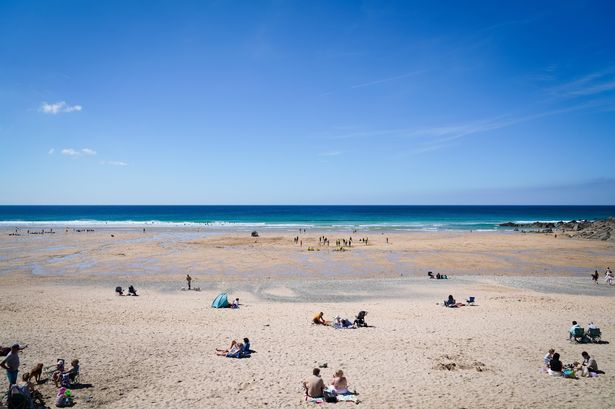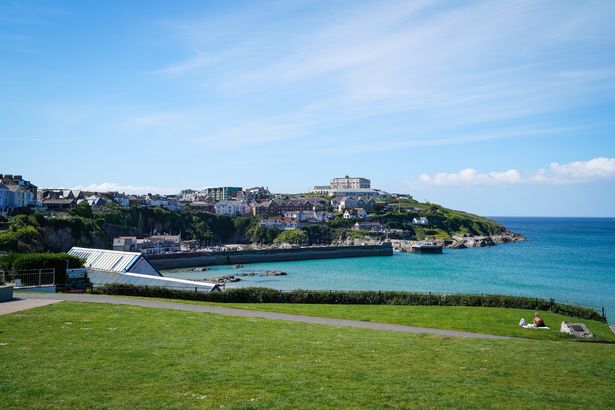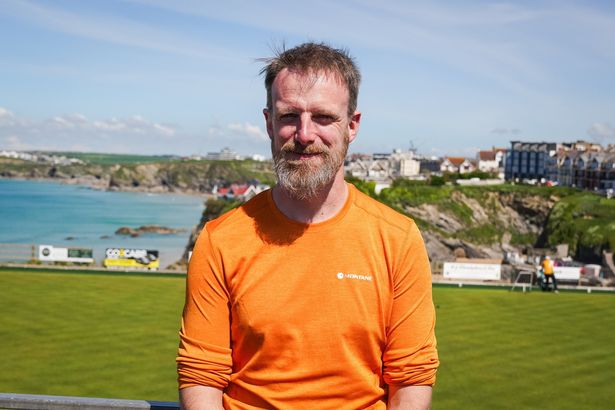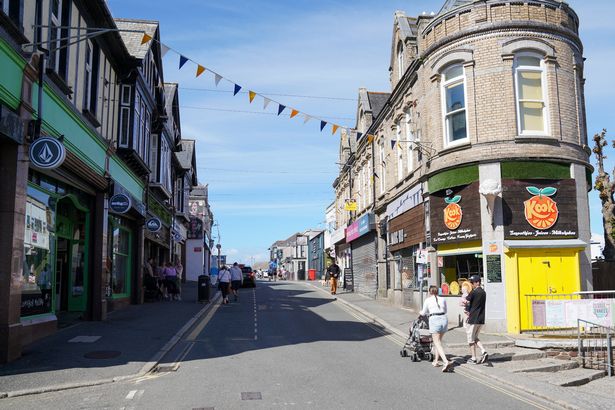Newquay in Cornwall was once known as the go-to place for hen and stag parties, but is now unrecognisable since the council cracked down on the drunken antics including the wearing of makinis
The seaside resort once dubbed ‘Britain’s Magaluf‘ has transformed beyond recognition after ditching its raucous image – and outlawing mankinis, according to local residents.
Shopkeepers and residents of Newquay in Cornwall hardly know the town anymore since it made a determined effort to lose its ‘wild west’ tag. Famed for its unruly atmosphere due to stag dos, boys’ holidays, and boisterous teen celebrations, the coastal spot has seen dramatic change.
In response to growing concerns, the council imposed a “mankini ban” in 2009. As part of the lauded Newquay Safe initiative, this rule prohibited mankinis and other “inappropriate clothing” like fancy dress in public areas.
This action was spurred by the tragic deaths of two teens during night outs in the area. The initiative proved successful, with Devon and Cornwall Police reporting a reduction in crime by one-fifth when comparing 2012 to 2009 figures.
Do you have a travel story to share? Email [email protected]
Incidents of anti-social behaviour also plummeted from 685 to 286 during these specific years. Locals, long wearied by incessant partying, say that today’s Newquay is in stark contrast to its boisterous past. Where the notorious Bertie’s nightclub used to stand, now quaint independent coffee shops adorn the main thoroughfare – the club shuttered last year.
Nowadays, families enjoy peaceful strolls along the shore and engage in surfing lessons, while the elderly can be seen playing bowls with the scenic beach as their backdrop. Vintage boutiques, skate shops, and surf gear outlets now intersperse with charming pasty sellers.
The amusement arcades nestled in the town centre remain as the sole remnants of a bygone era. Arcade employee Maddie Grover, 25, has observed a shift in her hometown’s atmosphere, noting that while stag dos still exist, they’re “not as bad as they were at the time”.
She recalled how the nightlife quietened notably after the closure of Bertie’s. Now, according to Maddie, certain clubs bar entry to costumed stag groups. Maddie described the change: “The high street is a little bit rowdy in the central area. It’s better now, it’s more calm, there aren’t as many fights. We see lots of families because we work in an arcade but we see a lot more families in general.”
Local shop worker Andy, 40, is relieved that the town is shaking off its old notoriety. He believes the transformation has bred a new mutual respect and eliminated the dread locals used to feel: “Silly season, we expect, but it’s not something you’re dreading anymore. You’re not dodging vomit on the high street.”
His daily skateboard commute is more pleasant now, without having to navigate around hazardous remnants of nocturnal activities: “I skateboard from the top of the hill to the shop and there’s no longer passed-out people, people who have vomited everywhere and broken glass. It’s cleaned up quite a lot since then. I just see hungry happy high people wandering around in the mornings looking for a good breakfast.”
And it’s not just the early risers who have changed; the town’s allure for families has spiked: “There are families coming down, and the families that come down have that mentality of: ‘I’d love to live here because of how it is.'”.
Andy also doesn’t miss the once-common sight of scantily clad tourists: “Compared to before when you would walk down the high street and see six dudes in mankinis and none of them have seen a gym before and you’re like: ‘Great’. Everyone likes to see a bollock at 11 in the morning.
“You still get stag and hen dos but they’ve been reined in. There are certain rules and regulations, like the mankini ban. You’re not allowed fancy dress in certain bars over a certain time in the evenings. In the day, if you want to come out and have a stag do and everyone dresses up and has fun, that’s absolutely fine, but once it gets past a certain time of night, it tends to knock that on the head.”
Andy, who enjoys donning spandex and cowboy boots, lamented that the stringent rules had resulted in him being denied entry to venues. “There’s a difference between fancy dress and dressing fancy”, he remarked. Overall, he conceded that Newquay has “cleaned up its act”.
“Fights are fights, it’s always going to happen. It’s the nature of mixing alcohol with idiots. You might not get it to such a grand scale now but it’s still going to happen. People will smash bottles on the beach,” Andy added.
“I don’t care what you do but my mates walk down here barefoot, my friend’s kids play on the beach. The beach is for everyone, not just for you to have fun. There is a bit of that and locals will bark at people. We want you to have a good time but also we want to have a good time, so don’t knock the bins over at 3am and wake everybody up. It’s just goofy stuff and not stuff the police can be running round and dealing with.”
But he mentioned concerns regarding second homes – an issue rife across Cornwall. Residents lament over being unable to afford homes in their scenic towns due to outsiders snapping up properties and driving up prices.
Peron Wills, a climbing instructor from nearby St Dennis, reflected on how nightlife has changed since his younger days. At 38, he remarked: “It’s not as good a night out as it used to be.
“I have been on stag dos here and they were pretty crazy. They have New Year’s and Christmas parties still but I think it used to be crazier. I don’t go out anymore so I just assume nobody does.
“There were always moans in the local papers that Newquay needs cleaning up. I don’t think it’s just Newquay; every town has the old versus young. Everyone moves away to go and find money. You grow up here and can’t afford to live here for a while so you go away and come back when you retire. There’s a big age gap. There are still clubs around but not as many as there used to be.”



